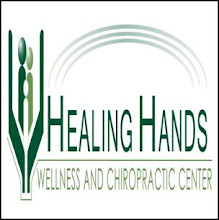Seen as a natural "energy-booster," ginseng has been used for thousands of years. While the exact mechanism of ginseng is unknown, it appears to have many benefits.
Ginseng is most commonly credited with:
- aphrodisiac properties — improving libido and sexual performance (shown in laboratory rats), sometimes a treatment for erectile dysfunction
- improving mental and physical performance — some use it to increase concentration and information retention, athletes use it to enhance performance
- boosting the immune system — it has been shown to increase white blood cell counts in humans, also believed to help the ill or weak regain strength and vigor
- anti-depressive effects
- sedative effects
- decreasing appetite
- lowering blood glucose
- relieving symptoms related to menopause
How does one herb achieve all this? The "magic ingredients" are most likely the active chemical compounds, called ginsenosides or panaxosides, contained mostly in the root, but also in the leaves and seeds of the plant. Over 20 different ginsenosides have been identified. Perceptive readers may have noticed that some of the uses of ginseng seem to contradict each other, such as acting as both a sedative and a stimulant. This remarkable capability to affect the body in different ways is due to the fact that while the various panaxosides are similar in structure, they can exert opposing effects. For example, the panaxoside Rb-1 acts as a central nervous system (CNS) depressant, having a stress-reducing effect with anticonvulsant, analgesic, and antipsychotic properties. But panaxoside Rg-1 is stimulating to the CNS, serving to ward off fatigue, increase performance, and possibly turn you on.
It's recommended that you follow the dosages prescribed on the box, or by an herbalist. A typical dosage is about 0.5 to 2 grams dry root daily, or 200 to 600 ml liquid extract daily. Be careful to avoid taking ginseng in larger doses than recommended, or simultaneously with other stimulants such as tea, coffee, or MAO inhibitors (anti-depressants). Diabetics should also be cognizant of ginseng's potential to lower blood sugar, and take that into consideration when administering insulin or eating. As with many herbs, pregnant or breast-feeding women should probably not take ginseng, as effects are unknown.
Some side effects are possible, and are most likely to occur with overuse, overdose, or allergies. Typical side effects include headaches, insomnia, gastrointestinal upset like diarrhea or vomiting, breast tenderness, menstrual irregularities, high blood pressure, and skin eruptions. If you experience any of these side effects while taking the supplement, you may want to lower your dose, or stop taking it altogether to see if the symptoms cease. Also, inform your health care provider about ginseng or any herbal supplement you are taking, especially if you are taking prescription medication. It's important that people who use ginseng or any herb understand that natural medicines are not regulated by the FDA, and that there may be both long and short-term side effects not yet discovered. Because ginseng and other supplements are not regulated, you always want to choose a reputable supplement company.
If you have any questions regarding this topic, feel free to call our office at (847) 673-6600 or visit us on the web at www.HealingHandsOfSkokie.com!

